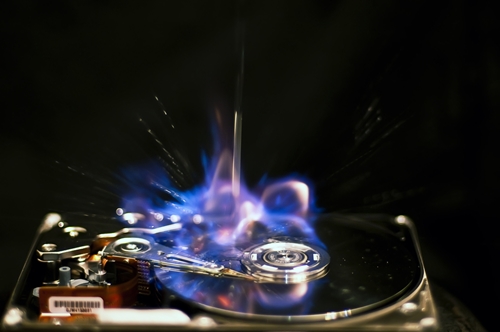
As the West Coast continues to face debilitating droughts and water is rationed carefully, data center managers need to consider their own fire preparedness level.
Because your data center is the information hub and the nerve center of your organization, any damage could seriously affect your competitiveness and market standing. Earlier this year, Samsung's data center in Gwacheon, South Korea, experienced fire damage that brought down the organization's website and made many of their customers unable to access apps on their mobile devices and smart TVs for the better part of a day.
Samsung scrambled to apologize to its customers, who had taken to social media to voice their frustration. Fortunately, no one was injured in the blaze, but it begs the question that if an organization with the size and resources of Samsung needs a full day to recover, what position will your organization be in?
According to TechRepublic, some of the critical elements of a fire suppression system involve an emergency power switch , a "smart" detection system and ideally, a suppression agent that will not destroy equipment or take days of clean up.
The fire detector for your data center should be classified as a Flame Detection System instead of the traditional smoke detectors that you might find in a residence. These types of systems are far more sensitive, and can avoid downtime or loss of equipment caused by false alarms. For example, a leak in the cooling system could potentially be detected as as fire by a traditional system, while a smart detector would be able to recognize the difference.
While considering data center design considerations, especially for fire prevention, managers need to ensure that they comply with local and state regulations. One common ordinance mandates that if a building is equipped with a wet pipe system, the classic water sprinklers common in office parks, all rooms must be equipped with a sprinkler, even the data center. Obviously, this causes a problem, largely because having thousands of gallons of water dumped on your equipment is less than ideal.
Generally, gaseous agents are the preferable fire suppression agents for a data center. Agents such as HFC-227ea, FM-200 and HFC 125 are effective at stifling fires, and won't damage your equipment to the same extent as water, meaning less downtime if a fire does occur.
In addition to these detection systems, many organizations also choose to invest in fire prevention systems. This approach reduces the chances of a blaze by lowering the level of oxygen in the data center, robbing a potential fire of its fuel source. Again, with this strategy, it is important that the data center engineer check with their local authorities to ensure such a system does not violate county or state regulations.
One of the most effective ways of preventing a data center fire is to take care with flammable materials. This means ensuring there is no dust build up, which should be part of the regular routine of a data center manager. Kevin J. McCarthy, Sr., vice president of EDG2, told FacilitiesNet that he recommends a "breakdown room" where all boxes and packaging materials are removed from equipment before being brought into the data center. Implementing a strict policy of no flammable materials in the data center may seem excessive to some, but strong and clear fire prevention policies greatly reduce the likelihood of an event.
Fire prevention and detection are critical data center design considerations, and need to be treated as such. Data center managers need to emphasize the best fire safety practices to keep your facility up and running smoothly and ensure that a fire does not disrupt your organization's processes.

